Port Glasgow centre on the front line of council cuts
- Published
How budget cuts may affect a community centre in Port Glasgow
May Hyslop has been coming to Clune Park resource centre since it opened almost 20 years ago but that could end soon as the centre has been targeted by the council in its latest round of cuts.
The 72-year-old runs the Happy Hands knitting club for a group of pensioners in Port Glasgow.
She spends three days a week here - taking part in line-dancing classes and the Tuesday lunch club.
May says she would miss her friendship group if the resource centre closed.
"Every time you turn around, there is another cut," she said. "This resource centre has always been on the closure list."
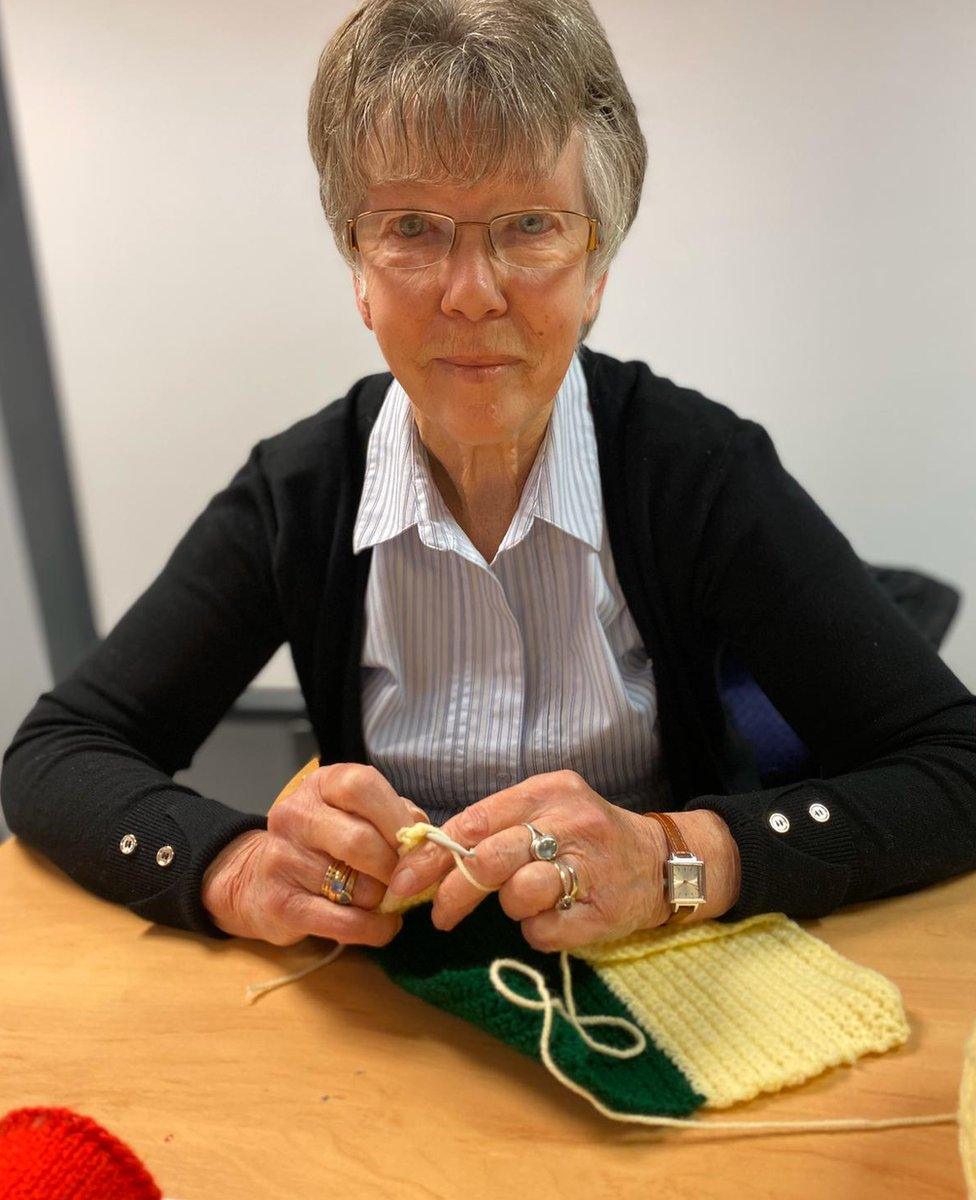
May Hyslop spends three days a week at the centre

Inverclyde Council has launched a budget consultation which lists 35 potential savings and cuts to services, including reduced opening hours in libraries, limiting free swimming to school holidays and having fewer teachers.
Clune Park is on the list, saving £36,000 per year for the council.
May's friend Jean Campbell said: "Every year there is something to fight for, to keep it open, to give people something to do."
Another friend, Isabelle Potter, said: "They have to look at the social side of this, as opposed to thinking of it as a group of old ladies just sitting sewing for an hour."
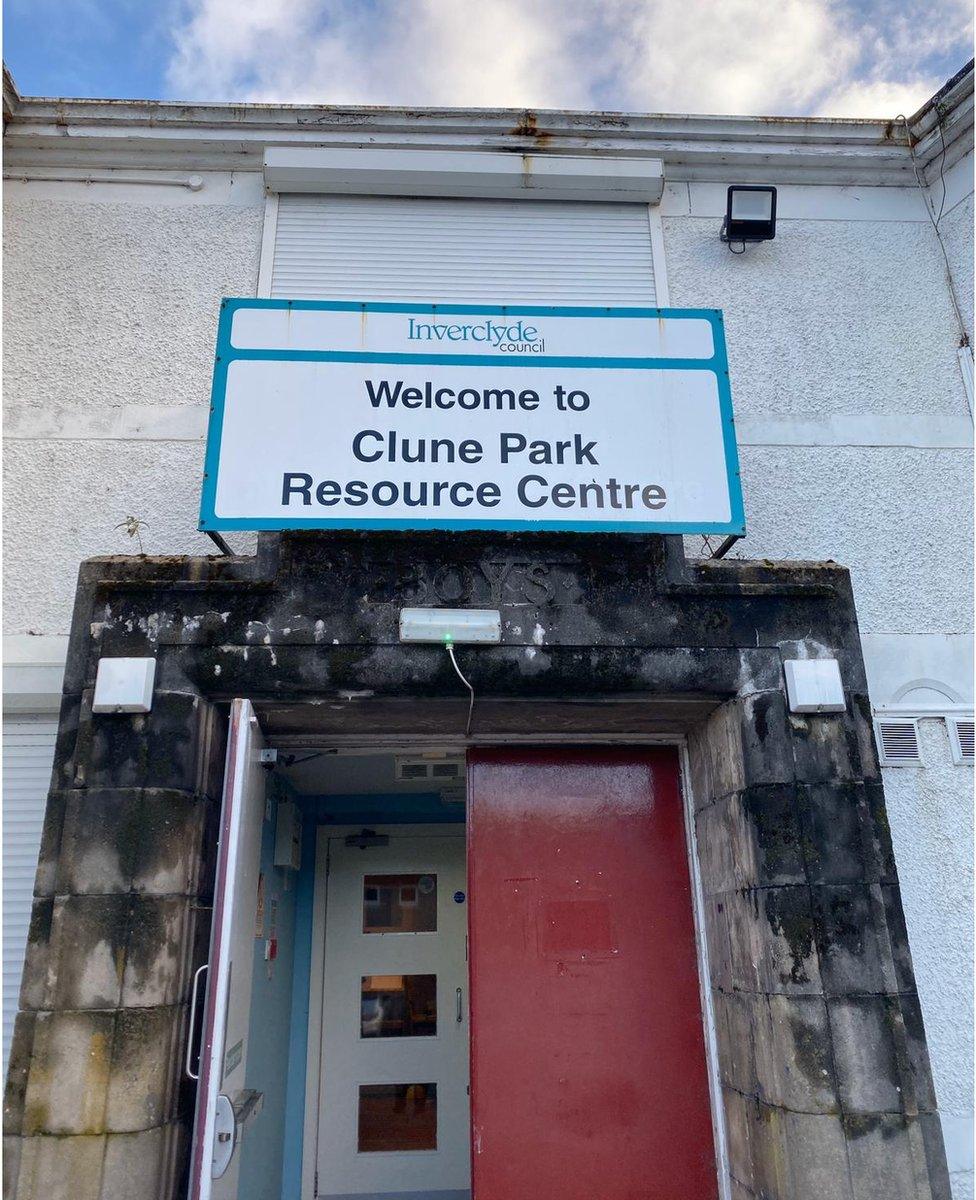

The resource centre is part of crumbling old school building in a nearly-deserted housing estate.
Once home to hundreds of shipyard workers, Clune Park boasts some of the UK's cheapest property - most of the buildings are listed as BTS (Below Tolerable Standard).
Of the 430 properties in the estate, about 20 are occupied.
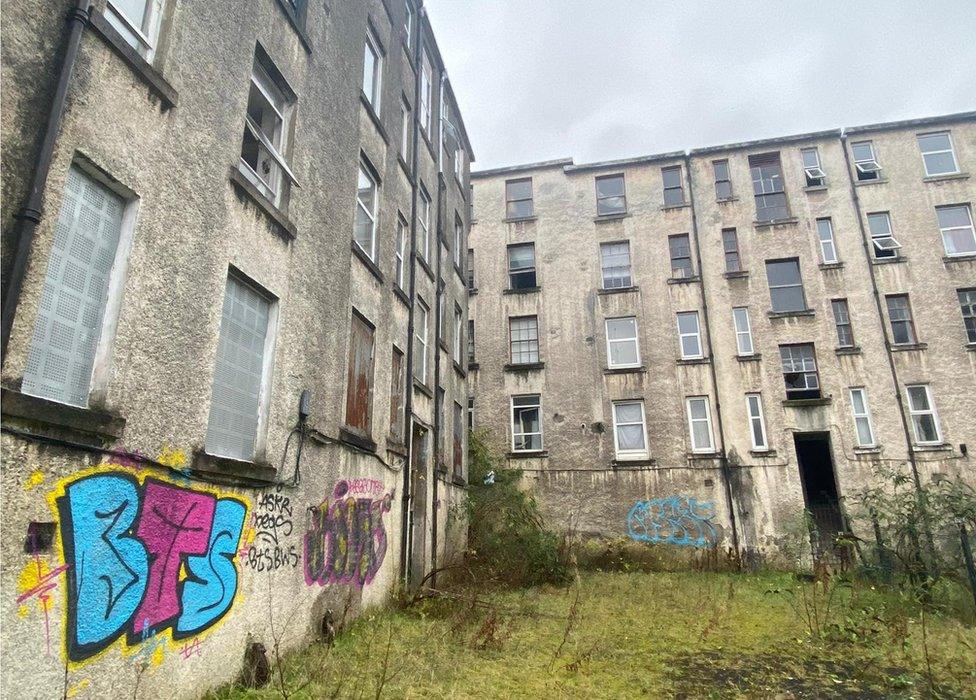
The Clune Park estate is almost deserted, with most housing unoccupied
Inverclyde Council has bought 160 flats from private landlords in a long-running bid to regenerate the area.
The centre is the busiest part of the estate - but the council claims it operates for only 20% of its opening hours.
It costs £36,000 a year to run and is one of four halls facing closure in the council's £2.4 million savings plan for 2020/21.
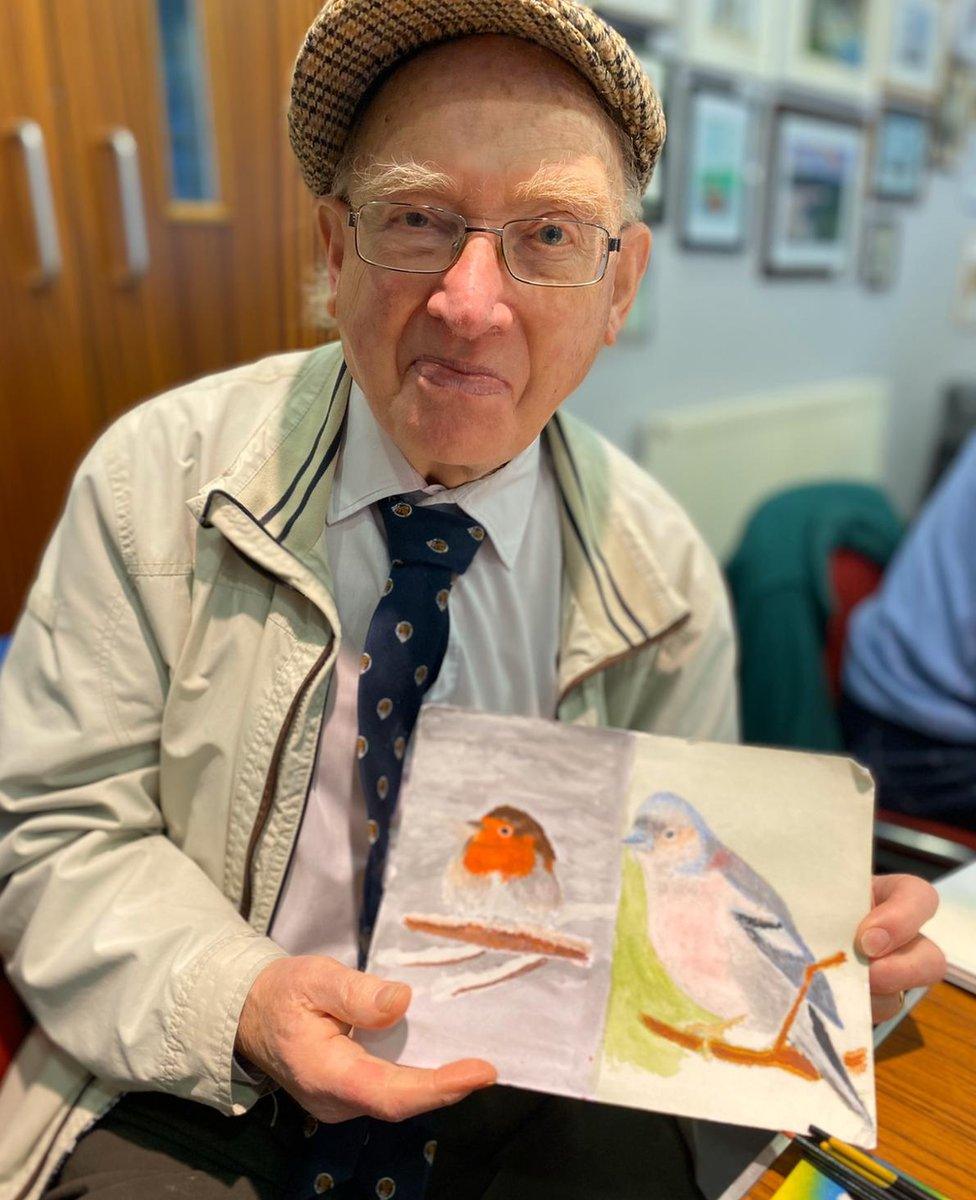
Robert Munro, 83, displays his art work

The Clune Park research group meets every Tuesday. The members study local history and write books on travel advice for pensioners.
When BBC Scotland's The Nine visited, some were trying to fill in online forms to take part in the council's budget consultation, which ends on Saturday.
The final decision on their community centre will not happen until next year but many of them believe it is a foregone conclusion.
The research group is working on its latest book, which it is unlikely to be published before the centre closes.
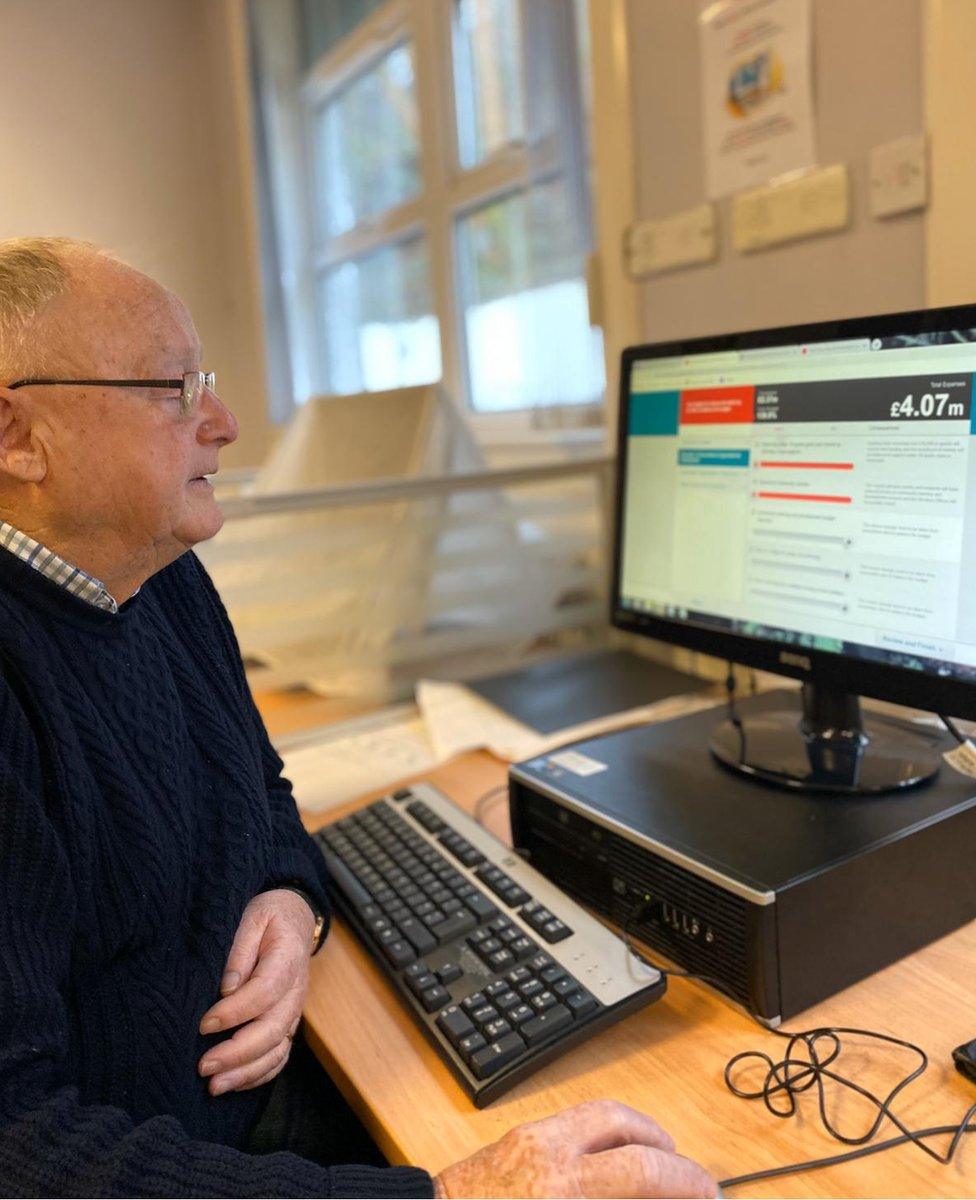
John Thomson gets to drips with a budget simulator on a computer at the resource centre

At his computer, John Thomson said: "We are all under the impression that this place is going - no matter what happens."
Former soldier Jim Burns, 76, said: "We have built up such a friendship group here. We are just going to go our own way.
"It gives you a reason to get up in the morning and go and meet your friends. Without this in the community, you'll just be sitting at home, carers coming to look after you and you lose the will to live."
Ian McTaggart - in his 80s - added: "You ask anyone who uses the centre what they think and I can guarantee you they say they love it. But that doesn't go down too well with the council."
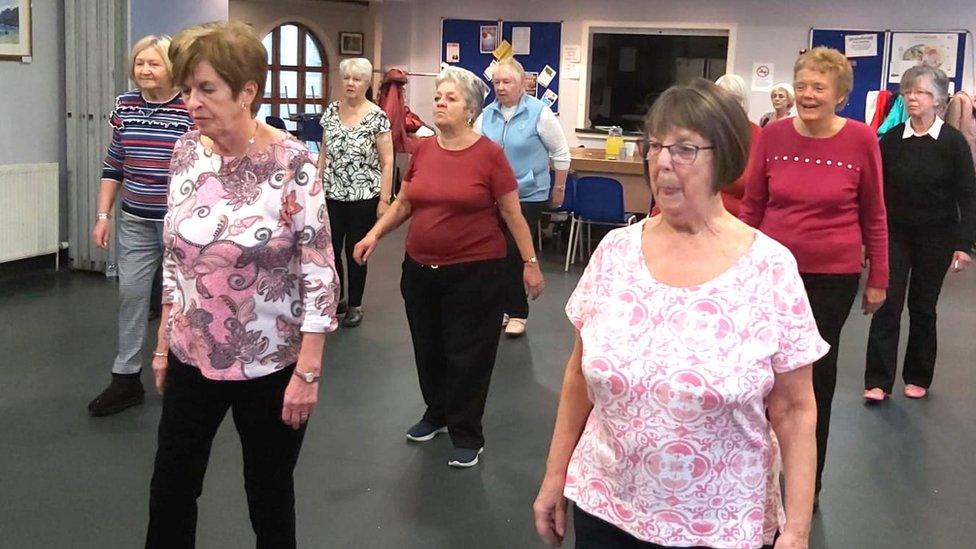
The resource centre runs classes in line dancing as well as Zumba and arts and crafts
Clune Park resource centre runs classes for Zumba and line dancing, arts and crafts, IT and PC repair as well as a lunch club and a recovery group.
Of the 45 hours the centre was open in a week, The Nine found it was used for about 14 hours - slightly more than claimed by the council - and by multiple groups at the same time.
Inverclyde Council said its grant from the Scottish government had fallen in real terms by nearly £14m over the past five years.
Council leader Stephen McCabe said: "Councils also have less and less choice about how they spend their money. About 30% of our budget now goes on delivering Scottish government policies at the expense of local priorities.
"Our grant for 2019/20 did go up. However, it wasn't enough in the first place so we'll still have to make £2.4m in savings next year, on top of the £3m in cuts we had to make last year.
"No council can absorb these kinds of cuts without there being an impact on local communities."
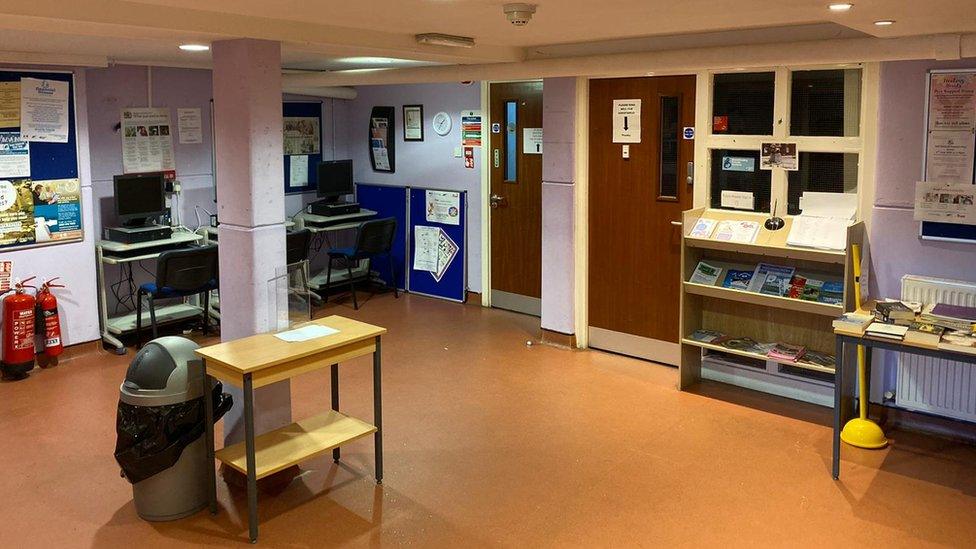
The resource centre is open 45 hours a week but only used for 14
A Scottish government spokeswoman said despite further cuts from the UK government it had delivered a fair funding settlement for local government.
"Inverclyde Council will receive £181.3m to fund local services in 2019-20. Using their council tax powers they will generate an additional £1.7m to total £183m - an increase of £8.2m, or 4.7%, compared to 2018-19," she said.
"While ring-fenced funding is for increased investment in services such as our schools and nurseries, local authorities have complete autonomy to allocate over 92% of the funding we provide, plus all locally-raised income. Any assumptions relating to possible future budget reductions are entirely speculative at this stage."